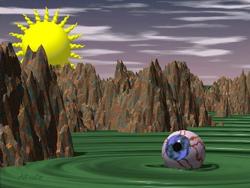The main thing that differentiates human intelligence from animals is abstract thinking through language.
- There are multiple studies showing that isolated children who were not exposed to language developed to be less intelligent adults. [ although this could also be explained by their isolation :-D ]
I would characterise human learning into 4 main types:
- We learn “genetically” through born instincts. Some of this is very complex! ( visual recognition of insects)
- We imitate/practice other behaviour around us
- We respond to good and bad stimulus
- We learn from other peoples “stories” (we can read an algebra book)
I would think that we are gradually better at learning types 2-3 then most animals (Some animals are better at #1).
But it is #4 ( our ability to communicate abstract ideas to each-other) that sets us apart. It allows us to communicate vast knowledge across generations.
Think about it this way: Look at a “caveman”. You might imagine the tribe's abilities to be closer to that of a pack of Chimps than a modern family of humans. However, at some point in evolution if you take said caveman baby, and put it through a school it would be able to function as a normal human. Because regardless of how it was born, it could absorb a modern education with a multitude of ideas and skills learned through abstract learning. A chimp would not fare so well.
The same goes for a modern child. If you remove them from society (and theoretically raise them with chimps). They would not fare much better than a chimp at modern tasks.
Now consider a middle ground: Take a modern adult homosapien “savage”. Someone who was born and lived for 30 years in some forest in Brazil. You would also be hard pressed to make them excel in intellectual pursuits. You would probably not even be able to teach them to read. This would imply that society also plays a role in our intellectual abilities.
So I would think that what sets us apart from animals is our high ability to absorb inter-generational societal knowledge. Looking at the caveman example: our intelligence is not important as individuals, but rather as a society. It's our society's ability to learn as an intergernerational group that's most important.
Oversimplifying this into math terms (we're all engineers here): Generational knowlege is exponential: If we are 2 times as smart as a chimp, then within 10 generations our society is 1000 times “smarter”.
And what enables all of this is a complex language.
Regarding Machine Intelligence and Robots:
Older pre-programmed state machines only had type-1 intelligence (instincts). They were very good only at what we programmed to do.
Today's deep neural networks are very good at the #3 type of intelligence. They learn ( better than humans ) through stimulus. But they suck at everything else. The current holy grail of DNNs are to apply things learned from one problem space to solve other problems. Some baby steps are being taken, but it's not very good yet. One could argue that if this succeeds, it would be the beginning of abstract communication between machines. We are not there yet. At the moment, if you want a DNN to recognize a new type of stop sign, you would probably need to show it a million images. You would not be able to give it an abstract description. And if you wanted to recognize the smell of a cake, you would probably just start building your DNN from scratch.









